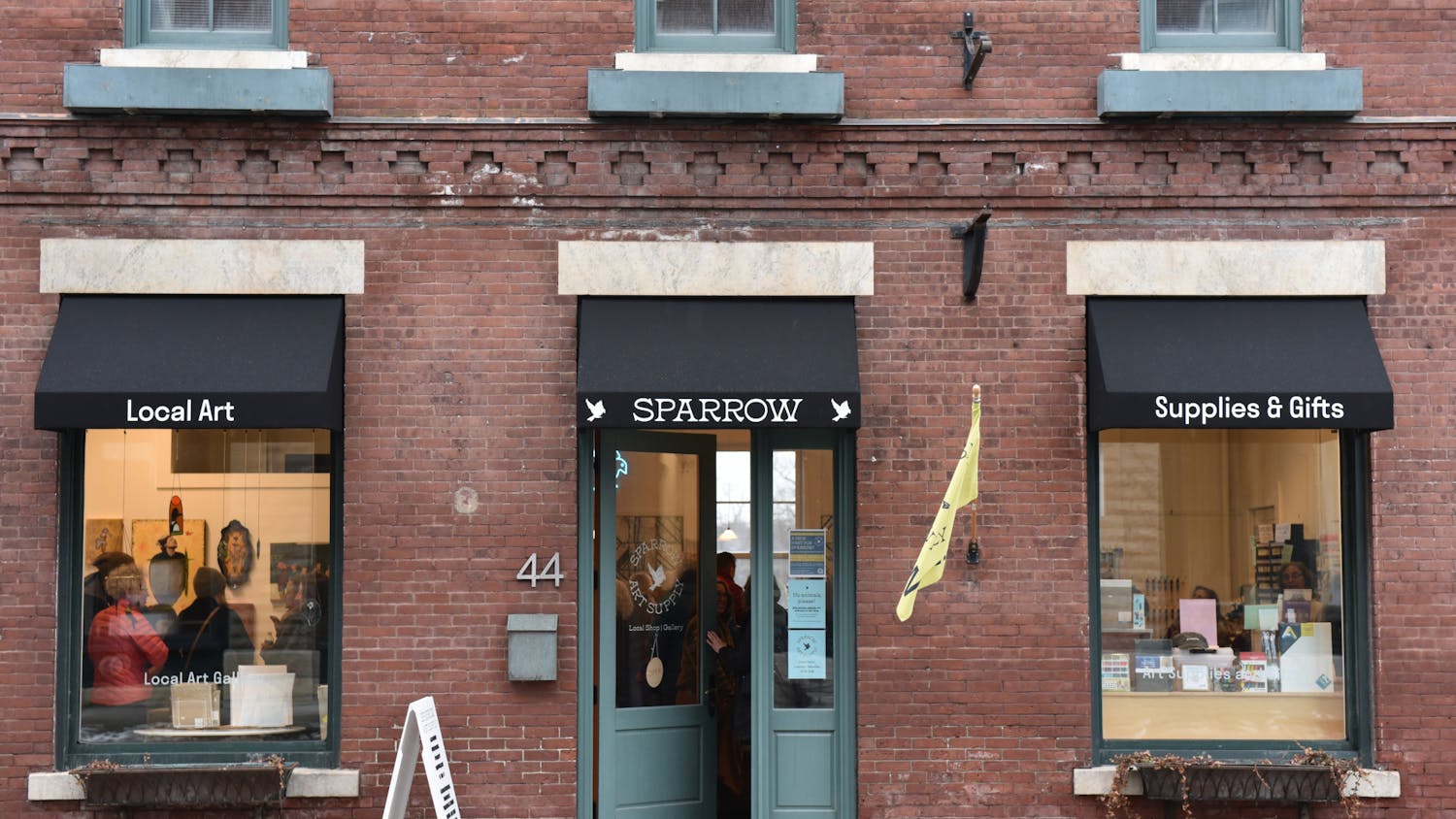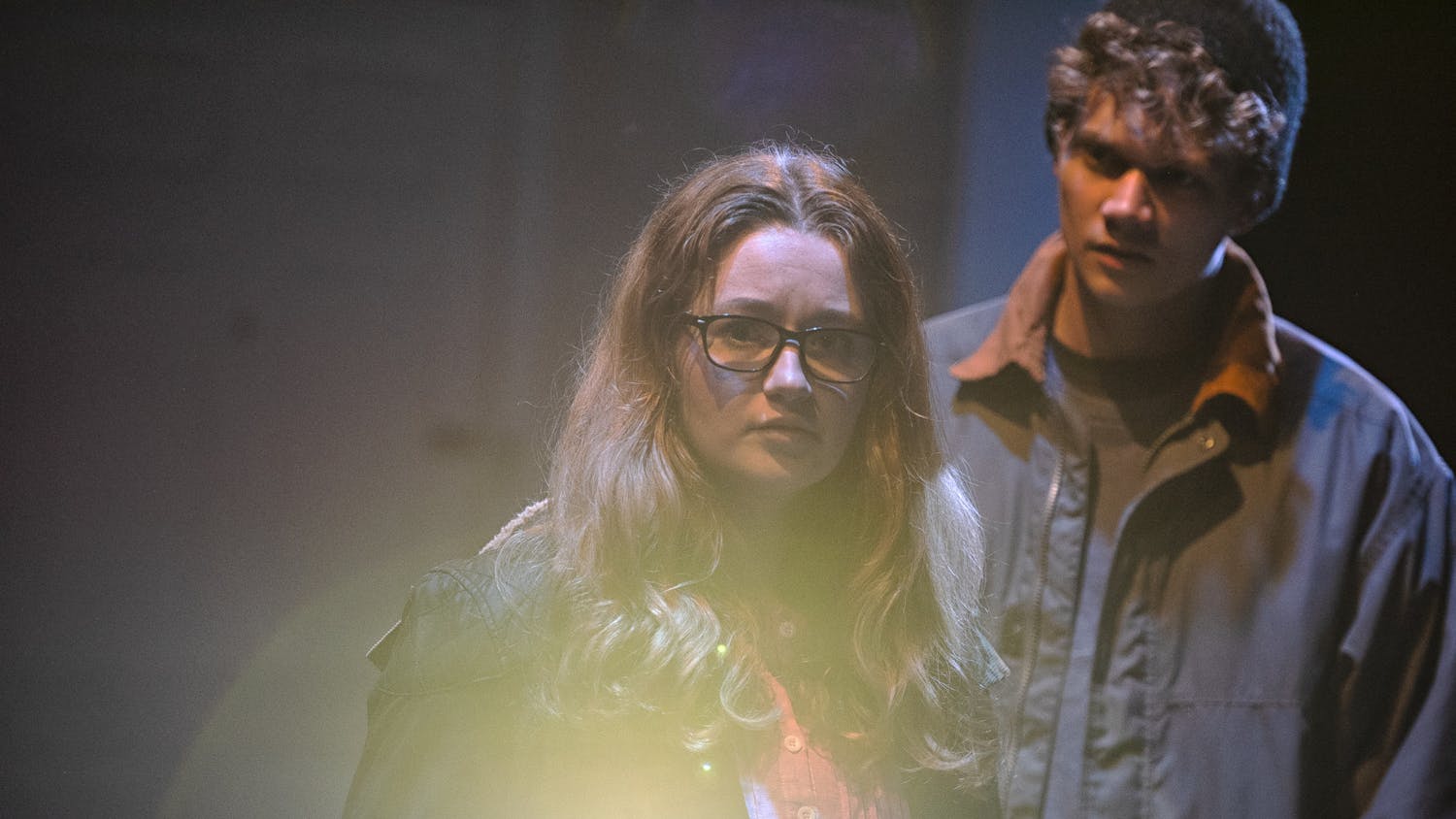Filling Nelson Arena with pure, raw and powerful vocals, Angelique Kidjo asserted her musical abilities from the first spine-tingling note of her Oct. 3 concert. Backed by a band from international origins that included guitar, bass, bongo and western-style drums, the Beninese artist and philanthropist brought a unique mix of African-inspired songs and profound wisdom to the Middlebury community in an unforgettable night of music, dance and joy.
Angelique Kidjo has that rare kind of energy and charisma that instantly fills a room with warmth and light. Wrapped in a dress of bright colors and patterns, Kidjo confidently sang her first inspiring songs, exhibiting her energy through dancing across the stage, spinning, swinging her hips and kicking her feet with every note. At first, the audience seemed unsure of how to respond to the cheerful mix of funk, Afro-pop, jazz and soul that encompass Kidjo’s distinct musical genre. The crowd swayed to Kidjo’s powerhouse vocals, increasingly warming to the artist as she sang her undeniably catchy songs.
Throughout the show, Kidjo also sang covers of songs that inspired her as a child, citing at the John Hamilton Fulton Lecture the previous day that she admired Nina Simone, Aretha Franklin, Bob Dylan and particularly James Brown, who partially inspired Kidjo to learn English. In the fireside chat style discussion with Professor of Music Damascus Kafumbe, Kidjo discussed listening to Brown.
“I thought, ‘this is grooving too much for me not to learn the language!’,” she said.
Kidjo’s English and knowledge of at least six other languages were showcased impressively, each song increasing in energy until Kidjo all but demanded the audience to dance.
As the night progressed, something magical happened. Kidjo welcomed the audience into her heart, and they responded by welcoming her into theirs. Kidjo’s humble openness and honesty were first apparent when she stopped between songs to thank the many people who have touched her life, especially her father, who she credited for helping her get where she is today. Kidjo’s father allowed her to attend school and gave her the choice to follow her passions, a rare opportunity for girls in Africa at the time.
As a UNICEF Ambassador and founder of The Batonga Foundation, Kidjo works tirelessly to empower girls with the gift of health, education and choice. Kidjo credited her microphone as her “weapon of mass loving” and discussed the stupidity of making judgments about other humans based on color.
“Brain has no color. Wisdom has no color,” she said.
As I watched Kidjo blend her music and philanthropy on stage, I was again reminded of her talk the previous day. There, she captivated the audience with colorful personal anecdotes about her childhood in Africa, life in France, 30 years living in New York, her inspiration and maintaining her career. Kidjo offered wise words about her home continent to the audience of students, faculty and staff.
“People think Africa only has one story to tell,” said Kidjo. “We Africans have to learn to tell our story because we are blaming others for telling it for us.”
As Kidjo’s energy radiated from the stage, she painted a picture of an Africa full of sadness and hope, hardship and resilience, and community efforts for positive change. Kidjo conveyed the marvelous multiplicity and diversity of the continent she loves.
The mood of the concert changed when Kidjo asked the audience to sing along to the chorus of her song “Afrika” before descending the stairs into the crowd, stopping at regular intervals to interact and dance. The audience responded enthusiastically, screaming lyrics they had learned only moments before while dancing comfortably with Kidjo as if she was an old friend.
When Kidjo shimmied back onto the stage, she elevated the audience a step further by asking every person close enough to join her on the platform. I felt myself leaping on stage and taking my place parallel to Kidjo, facing the audience. I looked out into a sea of hundreds of faces, differing in age, race and color, but united in their expression of awe and respect for the woman who so easily erased boundaries and manufactured joy. Kidjo welcomed President of the College Ronald D. Liebowitz’s young son Ezra to stand with her, bending down to his level and singing “Happy Birthday” to him, accompanied by the enthusiastic audience.
For the rest of the concert, Kidjo put her trust in the audience’s ability to help her spread happiness and hope and make sure every person in sight was dancing. Focusing particularly on the children, Kidjo allowed herself to step out of the limelight for much of the end of the concert, welcoming an all-out dance party that was equally enjoyed by those on stage and those in the audience.
Professor of Dance Christal Brown stepped into the spotlight, as well as Liebowitz, who enthusiastically clapped to the beat. The dance off, featuring Kidjo’s bongo drummer, excited so much energy, so much happiness, and so much raw life that everyone momentarily forgot their troubles and simply joined together, a part of what Kidjo calls “the human family.”
Angelique Kidjo reminded us how lucky we are, gave us the gift of hope and joy, and challenged us to do the same for others. Though she sang in multiple languages about a continent on the other side of the world, Kidjo had every member of the audience dancing and having the time of their lives by the end of the night. After the lights went up and Kidjo and her band exited following the dance marathon, the majority of the crowd lingered and yelled for one more song, which Kidjo honored by returning to the stage and singing a Rolling Stones cover. The audience held on to Kidjo and her music as long as they could, showering her with love until she was no longer visible.
As I filed out of Nelson Arena, I felt slightly different then when I had entered the space. As an audience, we had whole-heartedly celebrated the power of life and, if only for a few hours, had our faith in humanity restored.
Stepping out into the cold October air, I realized that I had been walking next to Kidjo’s guitarist, Brooklyn musician Dominic James, who introduced himself enthusiastically and handed me a business card.
“It was great, it was great. I got 45 minutes of sleep, but it was great,” said James, beaming as people realized who he was and crowded around to shake his hand and tell him how much they’d enjoyed the concert. Many students, including Gabbie Santos ’17, lingered outside Nelson long after they exited the arena, still excited by the experience.
“I loved the energy, especially when she came off stage,” said Santos. “That was really special.”
With unparalleled grace and talent, Kidjo will live in the hearts and minds of those who witnessed her remarkable performance for a very long time. Kidjo left the Fulton Lecture with inspiring words.
“Be proud of who you are,” she said. “If your dream is not big enough, stop talking about it. Fear is what is holding us back. We can be whoever we want to be.”
Indeed, Kidjo’s life and career are marked by a passionate fearlessness that embodies the aspirations of many students, and we would all be wise to carry her advice with us as we forge our own paths.
Angelique Kidjo Inspires Audiences

Comments



